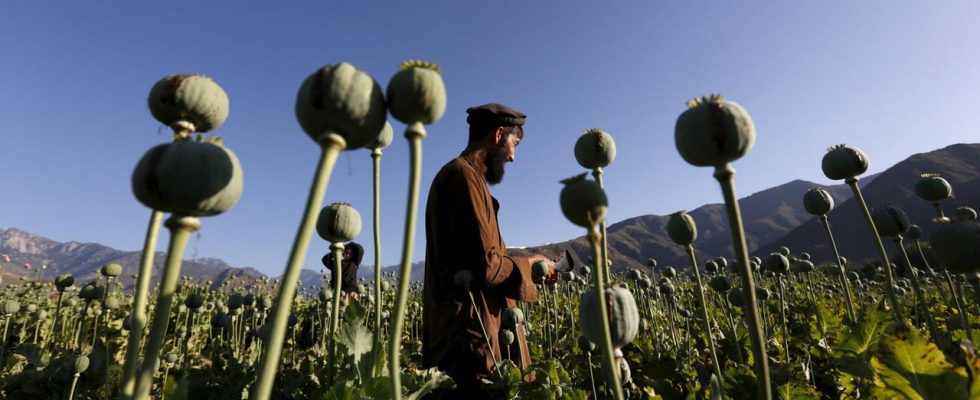In April 2022, the Taliban banned the cultivation of opium poppies in Afghanistan. Since then, according to the UN, production has collapsed by 95 percent – with devastating consequences for the rural population.
According to the UN, opium production in Afghanistan has fallen dramatically since the Taliban banned it. This emerges from a report published by the United Nations Office on Drugs and Crime (UNODC). Accordingly, the amount of opium poppies produced has fallen by 95 percent since the ban was imposed in April 2022 – from 6,200 to 333 tons.
Opium is obtained from opium poppies, which in turn is the basic product for heroin and morphine. Cultivated areas have declined from 233,000 hectares to 10,800 hectares in all parts of the country, it said. In 2022, opium poppy cultivation represented a third of the total value of agricultural production in Afghanistan.
Farmers need alternatives Sources of income
The sharp decline in the opium economy has far-reaching consequences for the country, the UN organization said. Farmers’ income from opium sales fell from an estimated $1.36 billion in 2022 to $110 million in 2023. According to the UN report, farmers in economically struggling Afghanistan had to switch to growing other, significantly less lucrative crops after the ban.
UNODC Executive Director Ghada Waly described the development as an “opportunity to make real progress against the illegal opium market,” she wrote on X. But Afghan farmers need legal, sustainable alternatives to opium.
Afghans urgently need humanitarian support to meet their most basic needs and cushion the shock of loss of income, Waly said. Severe losses have also been recorded in other areas of Afghan agriculture. A drought that has been going on for three years is also affecting the cultivation of cotton and wheat, explained Waly.
Taliban show social and economic Follow back
The population is also struggling with economic hardship and the consequences of decades of war and disasters such as earthquakes. The downturn and the cessation of financial aid from abroad after the Taliban came to power are driving people into poverty, hunger and addiction.
Afghanistan was the world’s largest producer of opium and a key source of heroin in Europe and Asia when the Taliban retook power in the country in August 2021. They promised to end drug cultivation in the country.
The Taliban-run Afghan Interior Ministry “partially” confirmed data in the UNODC report on opium poppy cultivation area, but rejected the data on opium production and social and economic impacts. These were not based on on-site surveys, but simply on the evaluation of satellite images and data from previous years.

